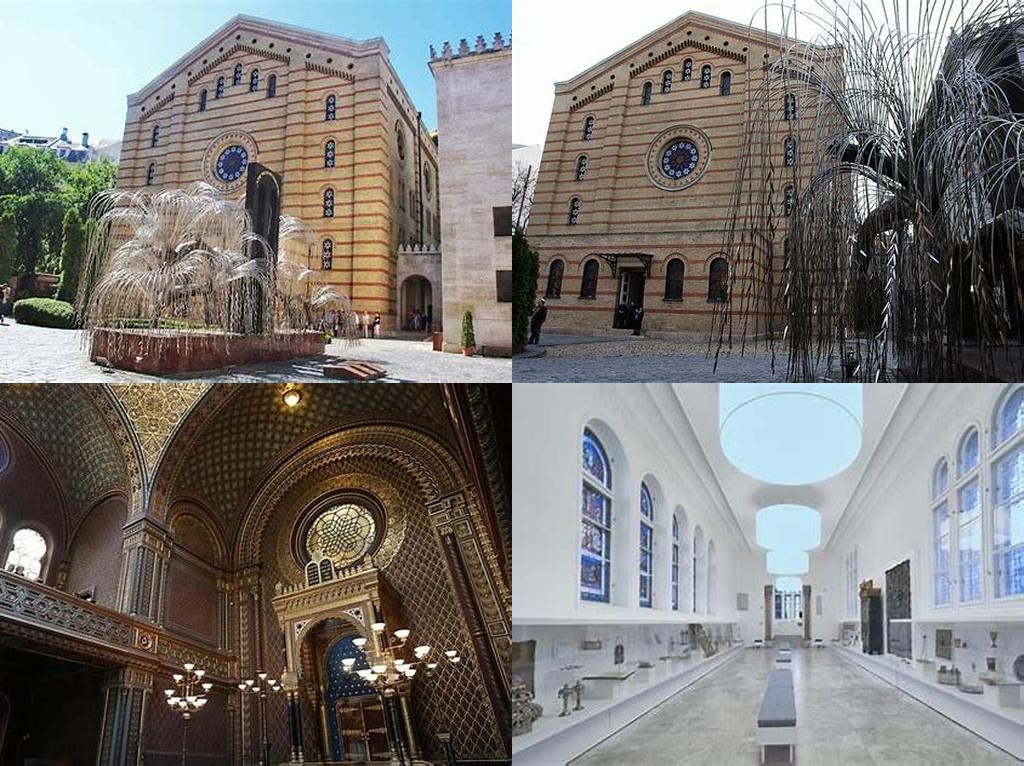
Magyar Zsidó Múzeum és Levéltár is tucked right in the heart of Budapest’s historic Jewish Quarter, yet it has a rather understated façade for a place so rich in stories. If you take a moment and step through its doors, you’ll find yourself immersed in a labyrinth of culture, memory, and artistry that has survived triumphs and tragedies alike. What draws so many people here is not just its collection—though that is remarkable in itself—but the sense that every object has witnessed the drama of history firsthand.
The museum is situated beside the magnificent Dohány Street Synagogue, itself the largest synagogue in Europe, and the two locations are tightly linked not just physically but spiritually. Just stepping into the museum is enough to transport you back to the early 20th century, when Samu Patai, a pioneering Jewish historian, envisioned a space that would house artifacts safeguarding the Jewish legacy in Hungary. The museum opened its doors in 1916, with the aim to collect religious, artistic, and everyday items that reflect centuries of Jewish life in this region. Over the decades, its collection has grown to showcase everything from medieval manuscripts to religious silverwork, and even a meticulous archive that feels almost like a time machine.
One of the museum’s biggest draws is its permanent exhibit, which leads visitors through the arc of Hungarian Jewish existence from the Middle Ages to the present. Here, ornate Torah scrolls and synagogue textiles share space with humble kitchen utensils and wedding contracts. Each display whispers a human story; these aren’t just relics, but tangible connections to families, communities, and vanished worlds. The maps, photographs, and ritual objects craft not just a museum tour, but a mosaic of everyday experience. As you meander through the galleries, it’s impossible not to be struck by the tension between joy and sorrow that defines Jewish history here. The shadow of the Holocaust naturally looms large and is handled with a solemn, thought-provoking sensitivity by both the museum and its adjoining archives.
What’s particularly fascinating for the historically curious is the archival section. The Magyar Zsidó Levéltár (Hungarian Jewish Archives) houses an astonishing trove of documentation—letters, diaries, community records, and priceless official correspondence dating back centuries. These dusty volumes and yellowed papers grant insight into everyday Jewish life: births, marriages, business dealings, and the long, often fraught dance with mainstream Hungarian society. Scholars from around the world often come here to research, piecing together genealogies, reconstructing lost communities, and wrestling with questions of identity. If you ever wanted a glimpse behind the scenes into a professional historian’s world, this is it.
The museum doesn’t just dwell in the past, however: it has a knack for curating temporary exhibitions that comment incisively on contemporary life and changing Jewish identity. There’s an approachable vibe—you don’t have to be an expert in history to appreciate the richness of what’s on offer. Occasionally, you might even stumble upon a musical event or a community gathering in the space, making it feel more like a living, breathing crossroads of memory and modernity rather than a static institution.
Stepping out from the Magyar Zsidó Múzeum és Levéltár and back onto the bustling streets of Budapest, you could easily let your thoughts linger there for a little longer. Whether you’re fascinated by religious art, the rhythms of everyday life in old Budapest, or the long shadow of European history, this museum gives you plenty to ponder. Visiting is less about ticking another attraction off your list, and more about being drawn into the intertwined stories of survival, resilience, and hope that continue to shape Hungary’s Jewish community today.





